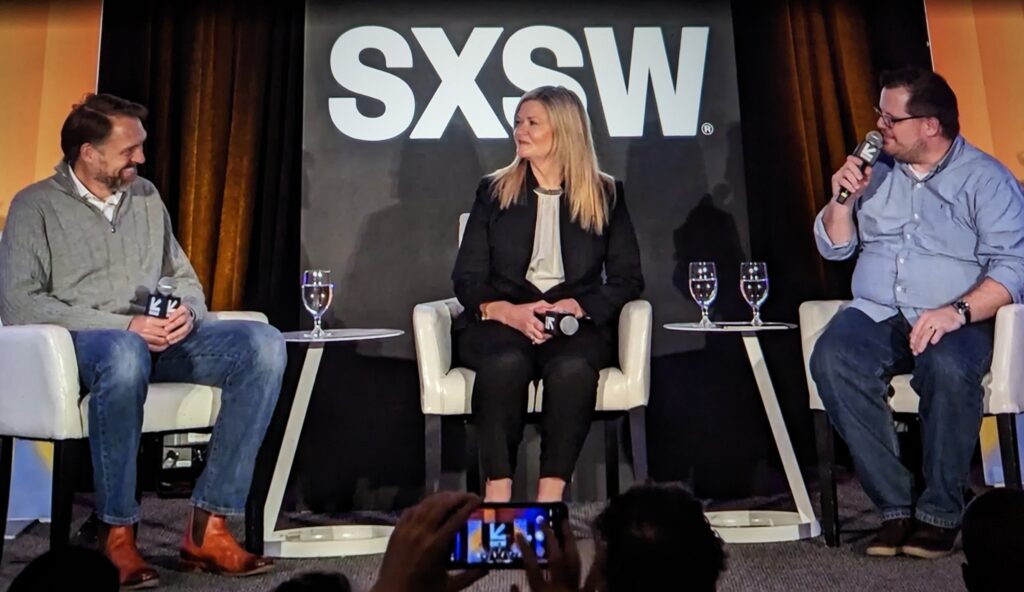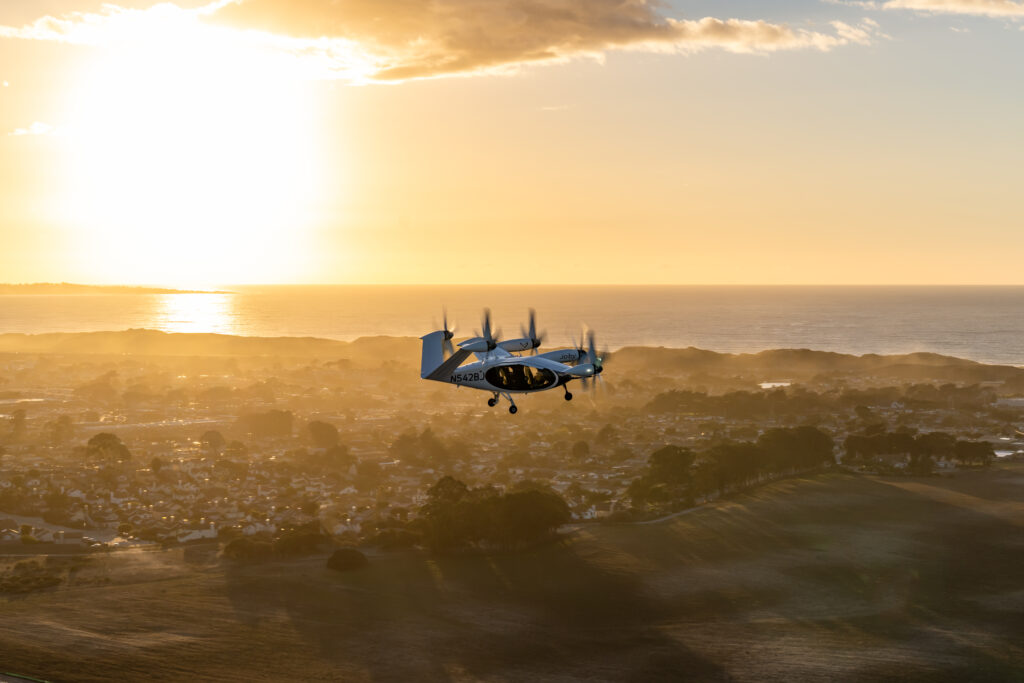Delta Airlines and Joby outline a seamless, sustainable eVTOL passenger experience
Share
It’s possible to be sustainable, to enhance the passenger experience, to open up new commercial opportunities and to offer more communities better connectivity, all at the same time.
This was according to a SXSW panel session featuring Delta Airlines Chief Sustainability Officer Pam Fletcher and Joeben Bevirt, CEO of eVTOL maker (and Delta partner) Joby.

Called “Flight Club, The Air Taxi take-off”, the panel was moderated by Jason Aten of Inc.com.
Joby is one of the leaders in the large pack of eVTOL manufacturers and is looking to get its S4 Aircraft into service by 2025.
Last October, Delta announced a $60 million up-front investment in the company, with a total of $200 million being earmarked depending on certain milestones being met.
That’s obviously a significant sum. However, Joeben Bevirt felt that Delta’s relationships with airports and city authorities as well as Delta’s customer base was perhaps more important than the investment. That’s because taken together, all these connections help make electric air taxis a reality.
According to Bevirt:
“Being able to stitch our air taxi flights in and around cities seamlessly with your Delta flight. That’s the piece that is so exciting. Being able to deliver this elevated customer experience to Delta customers, integrating it into the booking flow when you are booking a Delta ticket, and having that integrated with the Joby app.”
Meanwhile Delta’s existing relationships with the Port Authority of New York and Los Angeles World Airports will be key to establishing vertiports around Delta’s key hubs.
As Pam Fletcher pointed out, Delta has already invested $1 billion in the terminal at New York La Guardia, and is doing the same at LAX. As a result, the airline has strong links in its key hub cities.
That will enable, “a completely seamless experience. Seamless in the booking, seamless in the operation, how you transition from your Delta flight to Joby or back.”
Noise footprint – ‘like the wind in the trees’
Pam Fletcher lauded Joby, not only for its commitment to power its aircraft on 100% renewable energy, but also for its far lower noise footprint:
“Joeben and his team have performed a miracle with this very quiet signature of the S4 aircraft. All of these things just play together and make for an experience that some of us would never have dreamed of.”
This comes as Joeben Bevirt said that the company’s aircraft will not only be 100 times quieter than a helicopter, the remaining noise will be different:
“Instead of the ‘wap-wap’ of a helicopter that travels through the atmosphere and penetrates buildings, it’s more of a white noise, like the wind in the trees.”
Bevirt says that this low level of noise is pivotal when it comes to communities welcoming his aircraft. And though Delta’s airport hub to city center flights will be the start, like other eVTOL companies, Joby has a much more ambitious vision.
Bevirt wants communities to embrace the vision and say “we want air taxis” or “we want a vertiport.” That’s because a larger Joby / Delta network will not only result in better connectivity, you start to see economies of scale: “The more we have, the more convenient it becomes, the more savings we can provide.”
The experience will astound users
For Bevirt, it will save airline passengers as well as commuters time. The cost should also eventually be comparable to a car ride-sharing service.
Joeben Bevirt says that people are shocked when they hear this, yet points out that an Uber stuck in traffic and moving at no more than 10mph is far less efficient than an electric air taxi with four passengers at 200mph.

But it’s the experience that he believes will really astound users:
“We are so locked into our existence of driving along the roads. When you rise up above it, and you see the beauty of the world, it’s really profound. It puts a new perspective on every day. That’s one of the pieces I am beginning to understand, what a significant impact that will have on the quality of people’s daily lives.”
Obviously to get to that stage, eVTOL makers like Joby need to scale. Bevirt talked about the company looking at its manufacturing capacity, as well as work that’s on-going with the FAA on both certification as well as ATC so that Joby can increase the density of operations.
As well as Delta Airlines, Joby is working with ANA to bring the company’s eVTOLs to the 2025 Expo in Osaka.
Other major eVTOL companies in this space include Archer, which (similar to the Delta / Joby partnership), is working with United Airlines on airport to city services in NYC. Archer is also looking at launching by 2025.
Eve Air Mobility, which we profiled in a separate article, was spun out of Embraer and has United Airlines as an investor. It is also working with Kenya Airways, Republic and Skywest. Meanwhile German company Volocopter has agreements in place with Japan Airlines, and has Saudi Arabia’s NEOM development on board as an investor.


